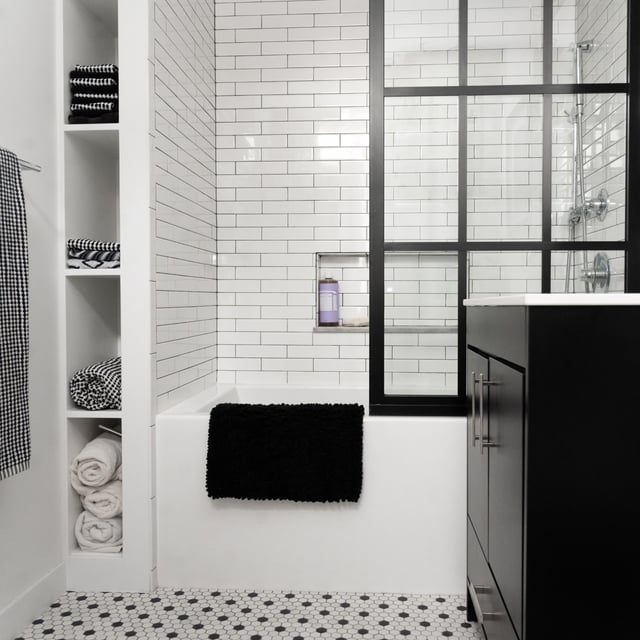
Remodeling
How to Finance a Bathroom Remodel in New Jersey
03.19.2025

In This Article
Walk-in showers offer homeowners both functionality and style, transforming bathrooms with a modern, open design. Installation costs can vary widely, influenced by factors like the shower type, size, and choice of materials.
Below, we guide homeowners through what to expect for each aspect of the installation, helping them plan confidently for their ideal shower. For those interested in tub-to-shower conversion ideas, explore these designs for inspiration on how to transition from a bathtub.
Choosing between a prefab and a custom walk-in shower can significantly impact costs, with each option offering unique benefits in style and flexibility.
Prefab walk-in showers provide an economical and convenient choice, with styles and finishes designed to fit various bathroom aesthetics. These showers are typically manufactured as single units or in several easy-to-assemble pieces, making them an ideal option for homeowners on a budget. Prefab units, available in durable materials like acrylic or fiberglass, can be installed quickly, which helps reduce labor costs.
Ideal for: Homeowners seeking a budget-friendly solution with efficient installation times.
Custom walk-in showers offer homeowners the ultimate flexibility in design, allowing them to make the most of unique spaces, like corners or sloped ceilings. They’re a top choice for those wanting to add built-in features such as benches, zero-threshold entries, or premium tile finishes.
Custom showers come with a higher walk-in shower remodel cost, but they provide a high-end look that maximizes space and functionality. If you’re considering a high-end design, these modern shower design ideas might spark some inspiration for your space.
Ideal for: Homeowners who value a personalized, luxurious bathroom experience.
Shower size impacts the materials, labor, and any necessary plumbing work. From standard showers to accessible designs, each size offers homeowners unique options to consider for functionality and cost.
A standard-sized walk-in shower offers a practical, cost-effective solution for homeowners. Prefab units simplify installation, helping to reduce labor costs, while custom designs allow homeowners to personalize their shower space with features that reflect their unique style.
Ideal for: Perfect for homeowners looking for a classic shower design that offers simplicity without the need for extensive customization.
Accessible walk-in showers offer a safe and inclusive option for homeowners with mobility needs, making bathroom spaces easier to navigate for everyone. While these showers may have a higher initial cost due to added safety features, they provide peace of mind and convenience, helping homeowners feel confident in their choice for an accessible and future-ready bathroom.
Ideal for: Homeowners prioritizing accessibility, safety, or planning for long-term comfort in their bathroom design.
The choice of materials affects both the aesthetics and the total cost. Here’s a breakdown of common material types, each offering a unique look and price range.
Acrylic inserts are a budget-friendly choice, offering homeowners a durable, low-maintenance surface that’s easy to keep clean. Often found in prefab shower options, material costs typically range between $800 and $2,500, with installation costs depending on the insert’s size and shape.
Ideal for: Homeowners looking for an affordable, durable option with minimal upkeep.
Fiberglass is a budget-friendly choice for homeowners, offering durability and easy maintenance similar to acrylic. It’s commonly used in prefab showers, with material costs typically between $2,000 and $5,000. Custom shapes or sizes may increase the price slightly but provide a tailored fit for unique spaces.
Ideal for: Homeowners focused on budget-friendly solutions can benefit from a reliable, durable material that’s easy to install and built to last.
Tile is one of the most customizable materials for walk-in showers, with choices ranging from budget-friendly ceramic to high-end designer tiles.
Pros: Tile offers homeowners a range of customization options in colors, sizes, and textures to create a unique, personalized look. Durable and water-resistant, porcelain and ceramic tiles are popular choices, while glass tile brings a sleek, contemporary style to any bathroom.
Ideal for: Homeowners looking for a stylish, customizable look that complements their bathroom’s design.
Marble provides a timeless, elegant finish that many homeowners find appealing. While it’s a premium option, requiring specialized installation, it’s ideal for those wanting to elevate their bathroom’s aesthetic with a natural, luxurious touch that adds long-term value.
Ideal for: Homeowners seeking an elegant, high-end finish that adds value to their home.
Granite is a durable and beautiful choice, priced similarly to marble. The stone’s strength and natural patterning make it a unique addition to any walk-in shower, though it does come with a higher material and installation cost than tile or inserts.
Ideal for: Homeowners interested in a natural stone look with greater durability.
Natural stones such as travertine, slate, and limestone provide distinct textures and colors that can enhance a shower’s visual appeal. These materials generally fall within the higher end of the cost spectrum and may require specialized installation to maintain their appearance and durability over time.
Ideal for: Those who prefer a natural, earthy look and are willing to invest in maintenance.
Beyond the main costs for materials and installation, homeowners should consider additional expenses that may affect the final price of a walk-in shower particularly when converting from an existing bathtub. Each of these elements, from demolition to plumbing adjustments, can play a role in creating a functional and tailored shower space.
Converting a bathtub into a shower is a popular choice among homeowners looking for a more accessible and updated bathroom. This type of project involves skilled labor to handle demolition, adjust plumbing, and prepare the area for a new shower, which can contribute to overall renovation costs.For more inspiration, explore these tub-to-shower conversion ideas here.
Ideal for: Homeowners looking to modernize their space or improve accessibility.
Demolition is a critical step in any remodel that helps homeowners prepare their space for a fresh start. While it can uncover hidden issues like water damage or old plumbing, professional demolition ensures the area is safely and thoroughly cleared, setting up homeowners for a smooth, hassle-free installation.
Ideal for: Homeowners replacing outdated showers or converting from a bathtub.
Plumbing adjustments may increase your budget, particularly for custom showers or setups with multiple showerheads. A knowledgeable contractor ensures proper water flow and drainage, making it essential for homeowners to have a functional, long-lasting shower.
Ideal for: Custom or luxury showers that need enhanced plumbing or special configurations.
Waterproofing materials like membranes and sealants help protect your shower from water damage, ensuring a lasting and durable structure. By properly waterproofing, homeowners can enjoy peace of mind and avoid costly repairs in the future.
Ideal for: All shower installations, especially custom designs with extensive tile work.
Accessibility features improve the safety and convenience of walk-in showers, catering to homeowners with mobility concerns or those planning for future needs. These additions are worth considering to create a more user-friendly and inclusive bathroom space. Planning a small bathroom layout? These tips can help you create a comfortable, functional shower space even in a compact area.
Ideal for: Homeowners looking for safer and more accessible bathroom solutions.
The labor costs for installing a walk-in shower can vary widely depending on the region, the complexity of the project, and the professionals hired. Here’s an overview:
Labor can be one of the biggest investments in a bathroom remodel, especially for complex walk-in shower installations. Homeowners choosing custom tiling, plumbing adjustments, or accessibility features may encounter higher labor costs.
Skilled contractors, however, provide peace of mind by ensuring a quality finish that prevents costly issues in the future. Interested in tiling details? Learn more about the average cost to tile a bathroom here.
Ideal for: Homeowners who prioritize professional craftsmanship and reliable results.
In addition to primary installation costs, there are extra expenses that homeowners might encounter during a walk-in shower remodel:
These additional costs allow homeowners to customize their shower’s functionality and appearance, providing the finishing details that enhance both aesthetics and usability.
Ideal for: Those looking to personalize their shower with lighting, high-quality doors, and reliable ventilation.![]()
When planning a walk-in shower installation, homeowners often decide between handling the project as a DIY or hiring a professional. Here’s a look at the pros and cons of each:
Hiring a professional is particularly beneficial for custom showers, high-end materials, or accessibility features. Contractors handle the technical details, such as waterproofing and rerouting plumbing lines, so you can feel secure that your investment is protected.
Is it a good idea to replace a tub with a walk-in shower?
Will a walk-in shower add value to my home?
What are the pros & cons of a walk-in shower?
Are walk-in showers safe for older adults and individuals with mobility issues?
Do walk-in showers require more maintenance than traditional showers?
Can a walk-in shower fit in a small bathroom?
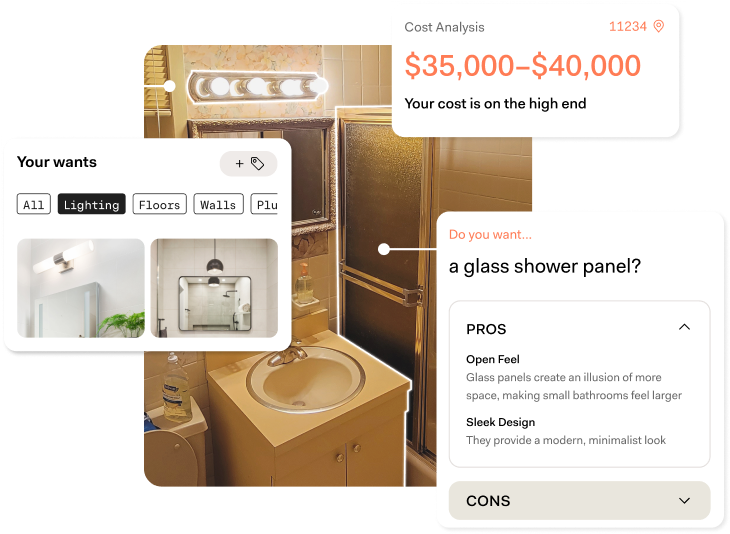
Calculate the true cost of your bathroom remodel
Get real-time cost estimates for materials and labor, so you can budget your renovation with confidence—no guesswork.

Remodeling
How to Finance a Bathroom Remodel in New Jersey
03.19.2025
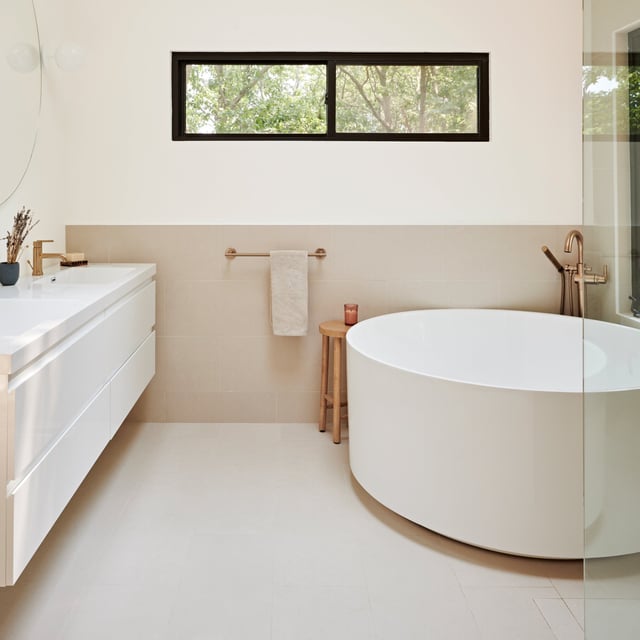
Cost
A Complete Guide to Bathroom Renovation Costs in Fairfield County (2025)
03.19.2025
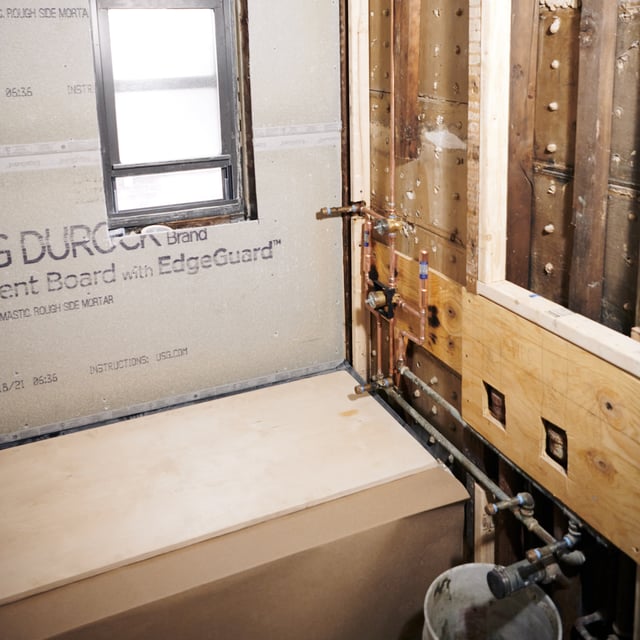
Cost
How Much Does It Cost to Add a Bathroom to a House?
03.19.2025
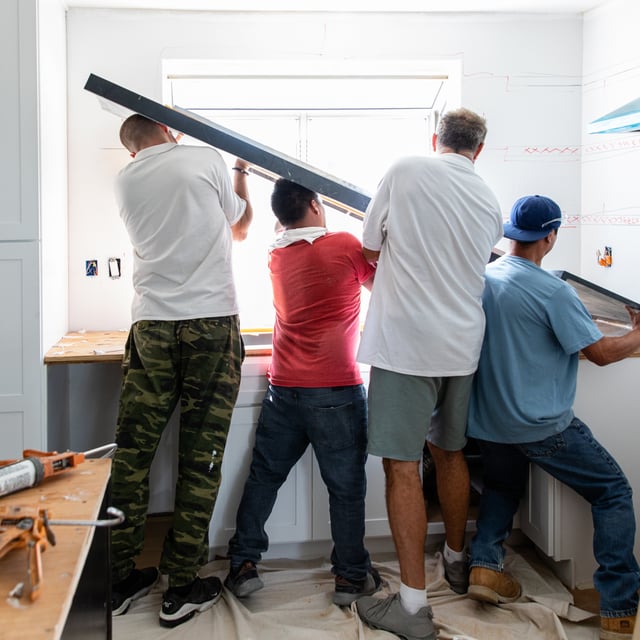
Remodeling
Should You Renovate Before Selling Your Home?
03.19.2025
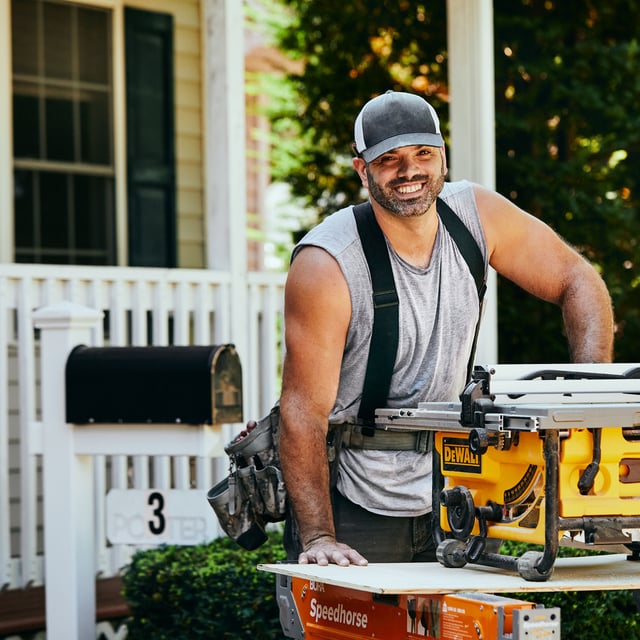
Remodeling
How to Renovate in Boston: A Complete Guide
03.19.2025
Renovate confidently